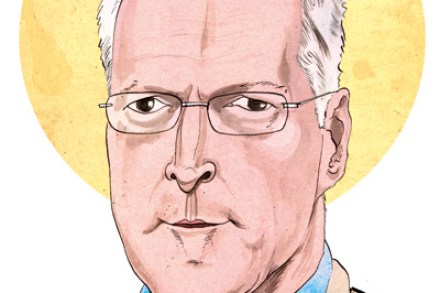Diarmaid MacCulloch: Am I anti-Catholic?
Does being gay make you a better historian? ‘Immensely, immensely,’ says Diarmaid MacCulloch. ‘From a young age, four or five onwards, I began to realise that the world was not as it pretends to be, there are lots of other things there. You learn how to listen to what is being half-said or implied, and that’s a transferable skill.’ MacCulloch knows what he’s talking about. He’s Professor of the History of the Church at Oxford and one of Britain’s most distinguished living historians. In academic terms, he’s on a par with David Starkey, who also happens to be gay. Like Starkey, MacCulloch is a Tudor specialist who has branched into


















